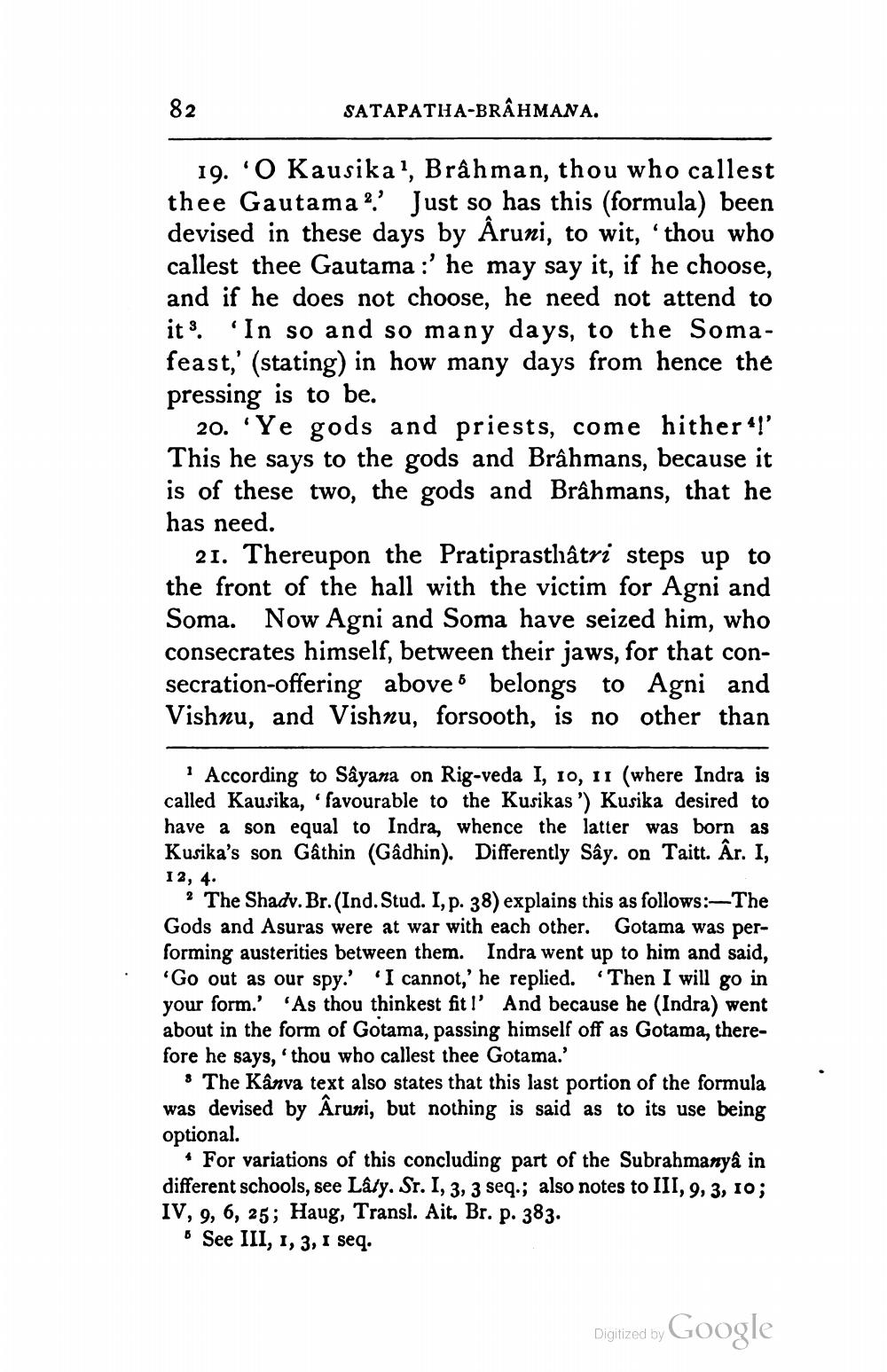________________
SATAPATHA-BRAHMANA.
19. O Kausika?, Brâhman, thou who callest thee Gautama?! Just so has this (formula) been devised in these days by Aruni, to wit, thou who callest thee Gautama :' he may say it, if he choose, and if he does not choose, he need not attend to its. In so and so many days, to the Somafeast,' (stating) in how many days from hence the pressing is to be.
20. Ye gods and priests, come hither'l' This he says to the gods and Brâhmans, because it is of these two, the gods and Brâhmans, that he
has need.
21. Thereupon the Pratiprasthâtri steps up to the front of the hall with the victim for Agni and Soma. Now Agni and Soma have seized him, who consecrates himself, between their jaws, for that consecration-offering above 6 belongs to Agni and Vishnu, and Vishnu, forsooth, is no other than
According to Sâyana on Rig-veda I, 10, 11 (where Indra is called Kausika, 'favourable to the Kusikas' Kusika desired to have a son equal to Indra, whence the latter was born as Kusika's son Gâthin (Gâdhin). Differently Sây. on Taitt. Âr. I, I 2, 4.
? The Shadv. Br. (Ind. Stud. I, p. 38) explains this as follows:- The Gods and Asuras were at war with each other. Gotama was performing austerities between them. Indra went up to him and said, 'Go out as our spy.' 'I cannot,' he replied. Then I will go in your form.' 'As thou thinkest fit l' And because he (Indra) went about in the form of Gotama, passing himself off as Gotama, therefore he says, 'thou who callest thee Gotama.'
The Kanva text also states that this last portion of the formula was devised by Äruni, but nothing is said as to its use being optional.
* For variations of this concluding part of the Subrahmanyâ in different schools, see Laty. Sr. I, 3, 3 seq.; also notes to III, 9, 3, 10; IV, 9, 6, 25; Haug, Transl. Ait. Br. p. 383.
6 See III, 1, 3, 1 seq.
Digitized by Google




